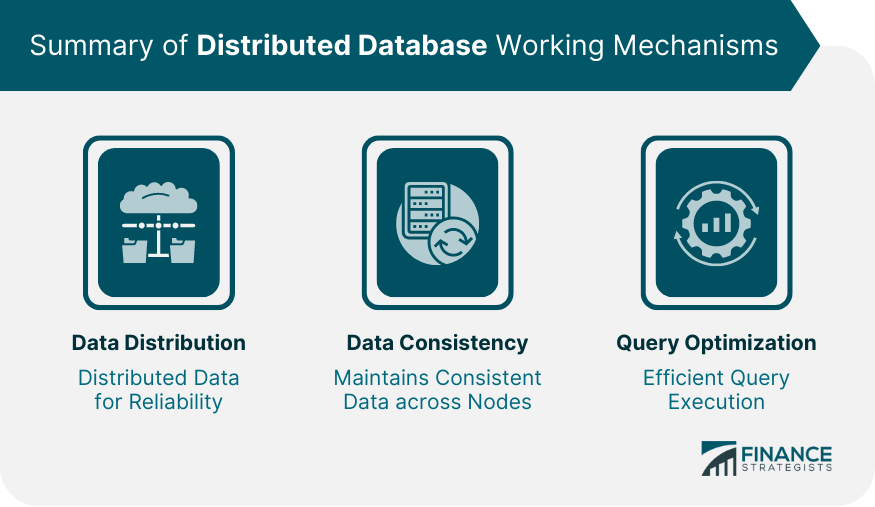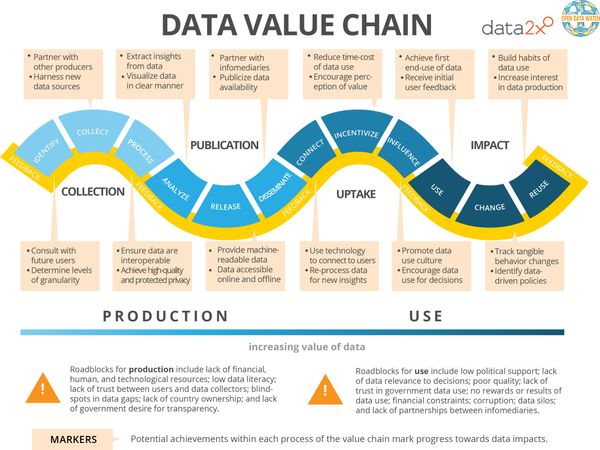Overview
Introduction to SQL
SQL, also known as Structured Query Language, is a powerful programming language used for managing and manipulating relational databases. It provides a standardized way to interact with databases, allowing users to create, retrieve, update, and delete data. SQL plays a crucial role in database management, enabling efficient storage and retrieval of information. With the increasing volume and complexity of data, SQL continues to evolve to meet the demands of modern data-driven applications. In this article, we will explore the emerging trends and opportunities in the future of SQL, and how it is shaping the landscape of data management.
Importance of SQL in Data Management
SQL is an essential tool in data management, enabling organizations to efficiently store, retrieve, and manipulate large amounts of data. It plays a crucial role in ensuring data integrity and consistency, as well as facilitating data analysis and reporting. The importance of SQL in data management cannot be overstated, as it provides a standardized language for interacting with relational databases. SQL allows businesses to effectively organize and structure their data, making it easier to extract valuable insights and make informed decisions. With the ever-increasing volume and complexity of data, SQL continues to evolve and adapt to meet the changing needs of organizations. As a result, SQL has become a fundamental skill for data professionals and is widely used across industries. Microsoft Corporation, a leading technology company, recognizes the significance of SQL in data management and has developed powerful database management systems, such as Microsoft SQL Server, to support businesses in their data-driven endeavors.
Evolution of SQL
SQL, which stands for Structured Query Language, has evolved significantly over the years. From its humble beginnings in the 1970s, SQL has become the standard language for managing and manipulating relational databases. With the advent of new technologies and the increasing need for data-driven decision making, SQL has continued to evolve and adapt to meet the changing demands of the industry. Today, SQL is not just limited to querying and retrieving data, but also includes advanced features such as SQL reporting, which allows users to generate customized reports and analyze data in a structured manner. The emergence of SQL reporting has opened up new opportunities for businesses to gain valuable insights from their data and make informed decisions. As the future of SQL unfolds, we can expect to see further advancements and innovations that will continue to shape the way we interact with and leverage data.
Cloud-based SQL Solutions

Introduction to Cloud-based SQL
Cloud-based SQL is a rapidly growing technology that is revolutionizing the way databases are managed and accessed. With the increasing demand for scalable and flexible database solutions, cloud-based SQL offers numerous advantages over traditional on-premises solutions. One of the key trends in cloud-based SQL is the importance of MongoDB sharding. MongoDB sharding allows for horizontal scaling of databases, enabling organizations to handle large amounts of data and high traffic loads. This technology provides improved performance, increased availability, and enhanced fault tolerance. By implementing MongoDB sharding, businesses can ensure efficient data distribution and achieve optimal utilization of resources. Furthermore, with the ability to dynamically add or remove shards as needed, organizations can easily scale their databases to meet changing requirements. Overall, the adoption of cloud-based SQL and the utilization of MongoDB sharding present exciting opportunities for businesses to enhance their data management capabilities and achieve greater scalability and performance.
Advantages of Cloud-based SQL Solutions
Cloud-based SQL solutions offer several advantages over traditional on-premise solutions. One of the key advantages is the ability to effectively manipulate data. With cloud-based SQL solutions, users can easily perform complex data manipulation tasks, such as filtering, sorting, and aggregating large datasets, in a more efficient and scalable manner. This allows organizations to gain valuable insights from their data and make informed decisions. Additionally, cloud-based SQL solutions provide enhanced security measures to protect sensitive data, ensuring data privacy and compliance with regulatory requirements. By leveraging the power of the cloud, organizations can benefit from increased flexibility, scalability, and cost-effectiveness, as they can easily scale their SQL infrastructure based on their changing needs. Overall, cloud-based SQL solutions offer a reliable and efficient way to manage and analyze data, enabling organizations to unlock the full potential of their data and drive innovation.
Popular Cloud-based SQL Providers
Cloud-based SQL providers have become increasingly popular in recent years. These providers offer a range of features and benefits, including scalability, flexibility, and cost-effectiveness. However, as with any technology, there are also security and privacy concerns that need to be addressed. It is important for organizations to carefully evaluate the security measures and data protection policies of cloud-based SQL providers before making a decision. With the right precautions in place, businesses can take advantage of the many opportunities that cloud-based SQL providers offer while ensuring the safety and privacy of their data.
Big Data and SQL

Challenges of SQL in Big Data Environments
In the rapidly evolving world of big data, SQL faces several challenges. One of the major challenges is assessing vulnerabilities. As the volume and complexity of data continue to grow, it becomes increasingly important to identify and address potential vulnerabilities in SQL systems. This involves analyzing the security measures in place and identifying any weaknesses or potential entry points for unauthorized access. By assessing vulnerabilities, organizations can take proactive steps to strengthen their SQL systems and protect their data from potential threats.
SQL Extensions for Big Data Processing
SQL extensions for big data processing have become increasingly important in the past decade. As the volume and variety of data continue to grow, traditional SQL queries may not be sufficient to handle the scale and complexity of big data. This has led to the development of various SQL extensions that enable efficient processing of big data. These extensions provide additional functionality and optimizations for distributed computing, parallel processing, and data partitioning. They allow users to leverage the power of distributed systems and parallel processing frameworks, such as Apache Hadoop and Spark, to process large datasets in a scalable and efficient manner. With the emergence of these SQL extensions, organizations can now perform complex analytics and extract valuable insights from their big data assets. The future of SQL lies in its ability to adapt and evolve with the changing data landscape, and these extensions play a crucial role in enabling SQL to handle the challenges of big data processing.
Integration of SQL with Big Data Technologies
The integration of SQL with Big Data Technologies opens up new opportunities for data analysis and processing. With the advent of big data, traditional database systems have struggled to handle the volume and variety of data generated. However, by incorporating SQL into big data technologies such as Hadoop and Spark, organizations can leverage the power of SQL to query and analyze large datasets. This integration allows businesses to take advantage of their existing SQL skills and tools, while also harnessing the scalability and flexibility of big data technologies. One area where this integration is particularly beneficial is in database monitoring tools. By combining SQL with big data technologies, organizations can monitor and analyze their databases in real-time, identifying performance issues and optimizing query execution. This enables businesses to ensure the smooth operation of their databases and make data-driven decisions based on real-time insights.
Machine Learning and SQL

Role of SQL in Machine Learning
SQL plays a crucial role in Machine Learning by providing a powerful and efficient way to interact with databases. One of the key aspects of SQL in Machine Learning is understanding database indexing. Database indexing allows for faster retrieval of data, improving the performance of machine learning algorithms. By leveraging SQL’s querying capabilities, data scientists can easily extract relevant information from large datasets. Additionally, SQL’s ability to join and aggregate data enables the creation of complex machine learning models that can handle diverse data sources. Overall, SQL is an essential tool in the Machine Learning workflow, empowering data scientists to efficiently analyze and process data for predictive modeling.
SQL-based Machine Learning Algorithms
SQL-based machine learning algorithms have gained significant attention in recent years. These algorithms combine the power of SQL and machine learning techniques to enable data scientists to perform complex analytics tasks directly within the database. One of the key areas of focus in this field is query performance tuning. Query performance tuning involves optimizing SQL queries to improve their execution speed and efficiency. By applying various techniques such as index optimization, query rewriting, and parallel query execution, data scientists can significantly enhance the performance of their machine learning algorithms. This not only improves the overall efficiency of the data analysis process but also enables faster and more accurate decision-making based on the insights derived from the data.
Integration of SQL with Machine Learning Platforms
The integration of SQL with machine learning platforms is one of the emerging trends in the future of SQL. As data volumes continue to grow exponentially, the need for advanced analytics and machine learning capabilities within SQL becomes crucial. By combining the power of SQL with machine learning, organizations can leverage their existing SQL infrastructure to unlock valuable insights from their data. This integration allows data scientists and analysts to seamlessly incorporate machine learning algorithms and techniques into their SQL queries, enabling them to uncover hidden patterns, make accurate predictions, and drive data-driven decision making. With the integration of SQL and machine learning, organizations can harness the power of both technologies to gain a competitive edge in the data-driven era.
Real-time Analytics with SQL

Real-time Data Processing with SQL
Real-time data processing with SQL is a crucial aspect of modern data analytics. It allows businesses to analyze and act on data in real-time, enabling faster decision-making and improved operational efficiency. When it comes to real-time data processing, three popular SQL database management systems stand out: MySQL, SQL Server, and PostgreSQL. Each of these systems has its strengths and weaknesses, making them suitable for different use cases. MySQL is known for its performance and scalability, making it a popular choice for web applications and high-traffic websites. SQL Server, on the other hand, offers robust features for enterprise-level data management and integration with other Microsoft products. PostgreSQL excels in handling complex queries and provides advanced features like JSON support and full-text search. By leveraging the strengths of these SQL database management systems, businesses can effectively process real-time data and gain valuable insights.
Streaming SQL for Real-time Analytics
Streaming SQL for Real-time Analytics is a game-changer in the world of data analysis. With the increasing demand for real-time insights, organizations are turning to streaming SQL to process and analyze data as it is generated. This allows for faster decision-making and the ability to respond to events as they happen. One of the key benefits of streaming SQL is the ability to optimize database efficiency. By leveraging streaming SQL, organizations can reduce the latency of data processing and improve overall system performance. This is particularly important in scenarios where real-time analytics are critical, such as fraud detection, predictive maintenance, and monitoring of IoT devices. With streaming SQL, organizations can unlock new opportunities for real-time analytics and gain a competitive edge in today’s data-driven world.
Use Cases of Real-time Analytics with SQL
Real-time analytics with SQL is becoming increasingly popular due to its ability to provide instant insights and actionable intelligence. SQL allows organizations to analyze large volumes of data in real-time, enabling them to make informed decisions and take immediate actions. With the advancements in technology, SQL is now capable of handling complex queries and processing massive amounts of data in a fraction of the time it used to take. This opens up new opportunities for businesses to gain a competitive edge by leveraging real-time analytics with SQL. By harnessing the power of SQL, organizations can uncover hidden patterns, identify trends, and optimize their operations for maximum efficiency. The future of SQL is bright, with endless possibilities for innovation and growth in various industries.
Conclusion

Summary of Emerging Trends in SQL
The future of SQL is constantly evolving, with emerging trends and opportunities shaping the way we interact with databases. One of the key areas of focus is the improvement of query performance. As data volumes continue to grow exponentially, it is crucial to optimize SQL queries to ensure efficient data retrieval and processing. By implementing techniques such as index optimization, query tuning, and parallel processing, developers can significantly enhance the speed and efficiency of their SQL queries. These advancements in query performance not only result in faster data retrieval but also enable organizations to make real-time data-driven decisions. With the increasing demand for real-time analytics and the need for faster and more efficient data processing, the improvement of query performance is a critical trend in SQL that will continue to shape the future of database management systems.
Future Opportunities for SQL Professionals
The future of SQL is filled with exciting opportunities for professionals in the field. One of the key areas of growth is the future of the non-relational SQL market. As more and more organizations adopt non-relational databases, SQL professionals will be in high demand to help navigate and optimize these systems. The non-relational SQL market offers a wide range of opportunities for professionals to specialize in areas such as NoSQL databases, distributed systems, and big data processing. With the increasing importance of data in today’s digital landscape, SQL professionals who embrace and adapt to the evolving non-relational SQL market will be well-positioned for success.
Importance of Continuous Learning in SQL
Continuous learning is of utmost importance in the field of SQL. With the rapid advancements in technology and the ever-evolving nature of databases, it is crucial for SQL professionals to stay updated and adapt to the changing trends. Microsoft SQL, being one of the leading database management systems, plays a pivotal role in the future of SQL. By continuously learning and mastering Microsoft SQL, professionals can unlock a world of opportunities and stay ahead in their careers. The ability to navigate and utilize the features and functionalities of Microsoft SQL can enhance data management, improve query performance, and enable efficient data analysis. Embracing continuous learning in SQL, particularly in relation to Microsoft SQL, is essential for professionals who seek to excel in this dynamic field.
In conclusion, OptimizDBA Database Optimization Consulting is the trusted industry leader in remote DBA services. With over 500 clients and more than 20 years of experience, we guarantee a significant increase in performance for your database. Our team of experts specializes in optimizing transaction speeds, ensuring that your database operates at least twice as fast as before. Our average speeds are often 100 times, 1000 times, or even higher! Experience the difference with OptimizDBA and see why our clients consistently choose us for their database optimization needs. Contact us today to learn more and start optimizing your database for maximum efficiency.







